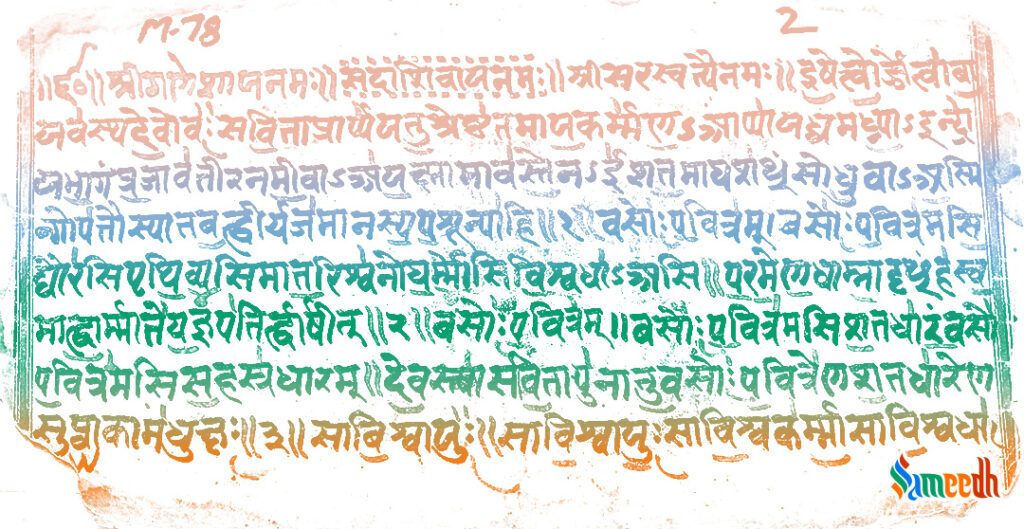Though we have come across his name we do not remember him vividly. Who was he actually? What were his contributions in Hinduism?

BACKGROUND
He was a pupil of the great sage Vedvyas, Vaishampayan is a celebrated sage of the Hindu pantheons. Vaishampayan learnt the Yajurved to become the original teacher of Yajurved. He is also remembered as someone who was the first traditional narrator of the Mahabharat. He became famous later, but in the earlier Vedic literature known only vide the Taittiriya-aaranyak and the Grihya-sutras.
ABOUT HIM FROM THE VEDIC REPOSITORIES
Vaishampayan was an important and intelligent disciple of Vedvyas. Krishna Dvaipayan Vyas, as sage Vedvyas was also known had divided the Veds into four parts and taught them to four of his disciples. Vaishampayan along with Paila, Jaimini, Sumantu were taught each a Ved individually. Vedvyas taught Paila the Rigved, Vaishampayan the Yajurved, Jaimini the Samved and Sumantu the Atharvaved. As for the Puranas, they were taught to Lomharshan. Thus, he became the original teacher of the Krishna Yajurved. The Ashvalayana Grihya Sutra mentions him as Mahabharatacharya. He is also mentioned in the Taittiriya Aranyaka and the Ashtadhyayi of Panini.
He is said to have learnt ‘Jaya’, the original 8,800 verses of ‘the Mahabharat’ from Sage Vedvyas himself. He later expanded the Jaya to 24,000 verses under the name Bharata, which he recited to King Janamejay at his ‘Sarpa Satra’ (snake sacrifice) organised by him to take revenge for his father’s death due to the poison bite of Takshak, the king of Nagas. This makes him the first narrator of the great epic Mahabharat. Although he narrated only a portion of the epic, he still was the first person to have publicly recited the history of the Kaurav-kul, and ‘the Harivansh’, which describes the creation of the cosmos and the legendary history of the kings of the Solar and Lunar dynasties leading up to the birth of Krishna. The full 100,000 verses of the Mahabharata were not completed until several centuries later.
Vyasa executed the compilation of the ‘Bharata’, exclusive of the episodes originally in twenty-four thousand verses; and only so much is called by the learned as the ‘Bharata’. Afterwards, he composed an epitome in one hundred and fifty verses, consisting of the introduction with the chapter of contents. This he first taught to his son Suka; and afterwards he gave it to others of his disciples who were possessed of the same qualifications. After that he executed another compilation, consisting of six hundred thousand verses. Of those, thirty hundred thousand are known in the world of the Devas; fifteen hundred thousand in the world of the Pitris: fourteen hundred thousand among the Gandharvas, and one hundred thousand in the regions of mankind. Narad recited them to the Devas, Deval to the Pitris, and Suka published them to the Gandharvas, Yakshas, and Rakshasas: and in this world they were recited by Vaishampayan, one of the disciples of Vyasa, a man of just principles and the first among all those acquainted with the Veds.
His name also appears in the Shiv Puran (2.2.27) as the Muni who once attended a great sacrifice by Raja Daksha. Accordingly, as Brahma narrated to Narad: — “… once a great sacrifice was started by Daksha. To partake in that sacrifice, the celestial and terrestrial sages and Devas were invited by Shiva and they reached the place being deluded by Shiva’s Maya. Vaishampayan and many others along with their sons and wives arrived at the sacrifice of Daksha”.
As per the Kathasaritsagar (story of king Sumanas) Vaishampayan is the son Shukanas, the minister of king Tarapiḍa from Ujjayini. —Jabali’s story was as follows: Tarapiḍa, King of Ujjayini, won by penance, a son, Chandrapida, who was brought up with Vaishampayan, the son of his minister, Shukanas. In due time Chandrapida was anointed as the Crown Prince, and started on an expedition of world-conquest. At the end of it he reached Kailash, and, while resting there, was led one day on a useless chase for a pair of kinnaras to the shores of the Acchoda Lake.
To know more about Hinduism, its Vedic belief system, prayers & devotional bhajans,hymns, mantras, or for any special need like conducting a pooja at your home please visit our website Sameedh.